The Comic Book Industry Supports Protests Against Police Brutality With Messages And Calls To Action
Since Captain America punched Adolf Hitler on the cover of 1941’s Captain America #1, politics has been a part of the comic book industry. Throughout the early days of Marvel, Stan Lee posted “Stan’s Soapbox” in his comics, where he often wrote against bigotry and racism. Though many younger readers might be shocked to learn that the comic book industry supports the protests, there is a long history of comic professionals speaking up and supporting protests. So, it isn’t a surprise that writers, editors, publishers, artists, and others in the industry are speaking up now, supporting protestors after a police officer killed George Floyd in an appalling act of brutality. And in times like these, artists of all kinds use their voice to do whatever they can for the protestors.
But first, what’s going on? Why does this protest seem more cataclysmic than past protests? Well, there’s a lot to unpack there.
What’s Going On and why the Comic Book Industry Supports the Protests
The White House is dark. Fires burn right in front of the gates. From above, Washington DC looks like a warzone. And in cities across America, we’re seeing similar images. Protests turned to riots. Anger turned to rage. We’re not even halfway through 2020, and America seems to have reached a breaking point. A collapsing economy, a deadly pandemic, and then a horrific act of police brutality.
Just a couple of weeks ago, maybe less, white Americans protested stay-at-home orders and mask requirements by surrounding state capitol buildings, brandishing assault weapons. The president called them heroes, and encouraged them to “free” their states. Unarmed black protestors, however, were met with police in military gear, and the president responding by quoting Segregationist George Wallace—“when the looting starts, the shooting starts.” The comment was so inflammatory, Twitter flagged it as glorifying violence…which the president followed by attacking social media outlets who dare challenge him (an American right).
At the same time, something interesting is happening. Even with their stores vandalized, many franchises—like Target—are supporting the protestors. In Queens, and all over the United States, police are crossing the line, kneeling with the protestors. So, why should a small cog (barely an eyeglass hinge screw) in the comic book industry write an article highlighting the various ways creators and leaders support the protests? Because silence isn’t an option.
What Comic Book Creators Are Saying About the Protests
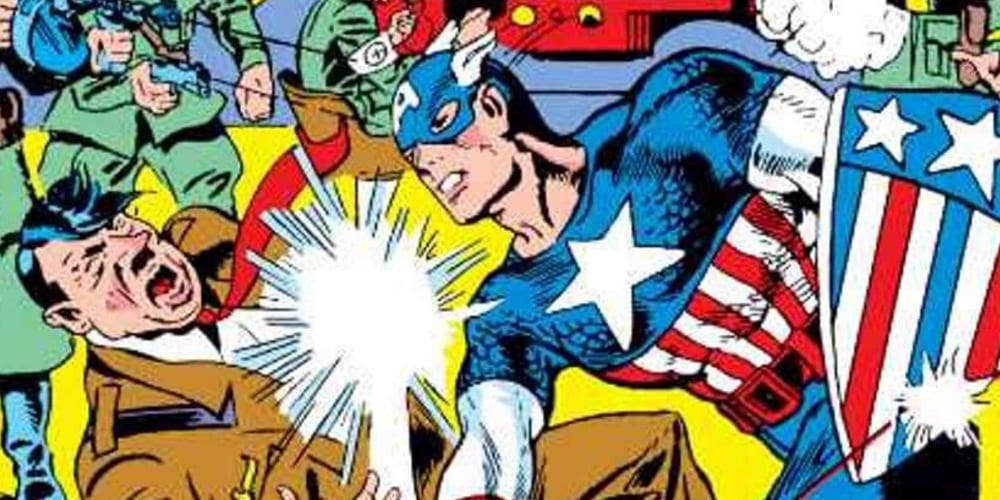 (Image: Marvel Comics)
(Image: Marvel Comics)
Creators are an impassioned group, so when something is important to them, they raise their voices. Take, for instance, Wonder Woman writer Gail Simone. To raise money for BLM groups, she is auctioning one of her most important possessions: the last page of George Perez’s Wonder Woman #600 story, signed by Perez. Along with the original Wonder Woman artwork, she’s personalizing and signing her recently published Wonder Woman Omnibus. While she supports the protests, she’s also calling on other comic book writers in the industry to do likewise, auctioning off something priceless to them for BLM.
Then there are the supportive and encouraging messages. Artist Joe Madureira tweeted, “Take a moment to remind everyone you know that #BlackLivesMatter. You’ll get some ignorant responses…Who cares? Don’t be silent. Our black brothers and sisters need to know we stand with them. Things need to change.”
And writers like Vita Ayala are reminding people that civil rights is intersectional: “Pride was a riot lead by Black and Brown trans women who were tired of the brutality their community was suffering at the hands of the police. You can’t party & forget the people who are STILL fighting. You can’t celebrate Pride & turn your back on Black people. #blacklivesmatter.”
There are also Black creators sharing their experiences with police brutality. Bryan Hill, the writer of Batman and the Outsiders, detailed how, at 15, he was thrown against the hood of a police car, a gun pointed at his head. “If you see “Black Lives Matter” and you start thinking about liberal conspiracies and feel the urge to “all lives” in response, THINK about what it means to think your life matters less,” Hill said. “Think about how it feels to believe, and have evidence, that your life matters less.”
Comic Book Industry Companies Supporting the Protests and Black Lives Matter
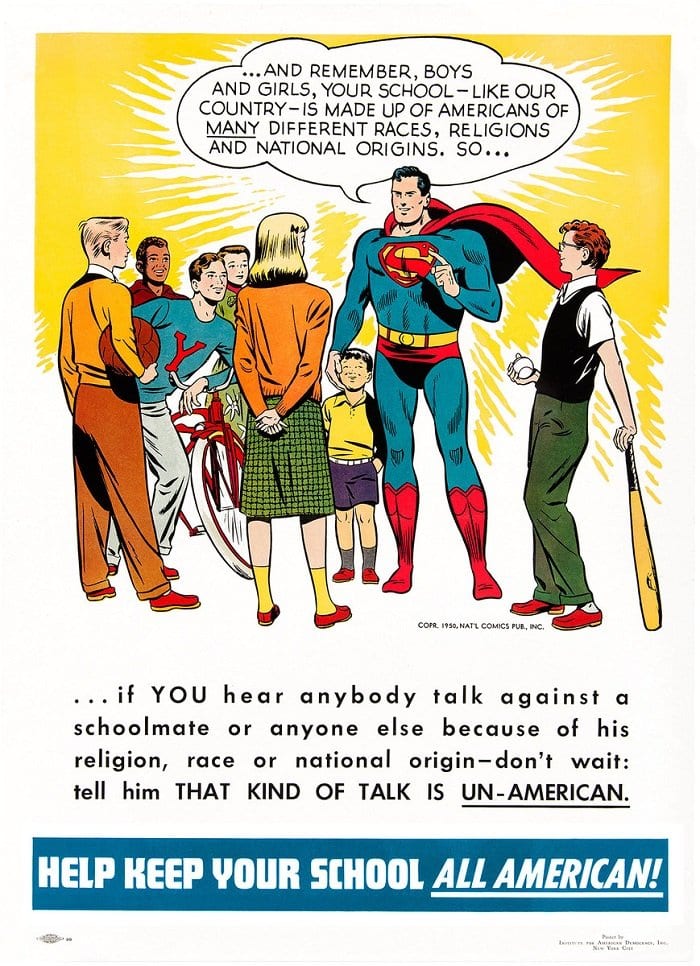 (Image Via DC Comics)
(Image Via DC Comics)
In the past, when an incident such as the death of George Floyd happened, companies would give a very general, vague response that kind of supports people, but also tame enough so it isn’t considered biased or inflammatory. But for the protests happening now, the comic book industry not just supports them. they taking a stronger stance (along with many other industries).
DC Comics quoted one of the most liberal heroes in comic book history, the one who started the industry, and a superhero who has joined protests: Superman. From Action Comics #775, “Dreams save us. Dreams lift us up and transform us. And on my soul, I swear… until my dream of a world where dignity, honor, and justice becomes the reality we all share — I’ll never stop fighting. Ever.” The writers’ rooms for all of the CW Arrowverse shows tweeted messages of solidarity with the protesters and shared information about organizations working to affect positive change.
Marvel Comics, along with every company Disney owns, shared these words: “We stand against racism. We stand for inclusion. We stand with our fellow Black employees, storytellers, creators, and the entire Black community. We must unite and speak out.” Remember, even the Punisher stands against bad cops.
Similarly, IDW stated, “We stand against racism and senseless brutality. We stand with Black creators, fans, and the entire Black community, and affirm that Black lives matter.” IDW ended their statement asking for people to help, and shared links for the NAACP Legal Defense Fund, the Minnesota Freedom Fund, and BlackLivesMatter.
There are still many comic book industry companies that haven’t commented, however. Hopefully we will hear from them soon too. As Disney stated, “We must unite and speak out.”
Comic Years Joins the Industry In Calling for Justice
It should go without saying, we don’t condone wanton violence, whether from everyday citizens or those who swore an oath to serve and protect. These protests are important. Stan Lee stood on his soapbox starting more than 50 years ago. And, almost unbelievably, we’re still fighting the same issues, the same bigotry. This has to end. The problem isn’t the looting and rioting, those are just symptoms of a the larger infection. It’s that the state has brutalized people of color for so long, and still the victims have not gotten justice. But history does give us some hope. In 1968, after the assassination of Martin Luther King Jr on April 4th, riots broke across America. Six days later, the House and Senate finally agreed on the Civil Rights Act of 1968. And on the seventh day of the riots, President Lyndon B. Johnson signed it into law. Right now, America needs leaders to step outside of themselves, their petty political infighting, and their own insecurities in order to achieve that uniquely American dream of a more perfect union.
We do well not to forget the most infamous act of resistance in the Revolutionary War, the Boston Tea party, was itself an act of looting. The Boston Massacre was a violent response from authorities to a citizen-led protest. In fact, the first casualty of the nation’s fight for independence was a black man named Crispus Attucks. Since then protests and, sometimes, violent insurrection became part of the American DNA. While always tragic, it can be the catalyst for positive change. These moments of crisis can also be moments of opportunity.
Please, be kind, stay safe, and engage with your neighbors and communities. And remember, Black lives matter.
(Featured Image from Dark Avengers/X-Men: Utopia, Marvel Comics)
Roman Colombo finished his MFA in 2010 and now teaches writing and graphic novel literature at various Philadelphia colleges. His first novel, Trading Saints for Sinners, was published in 2014. He's currently working on his next novel and hoping to find an agent soon.

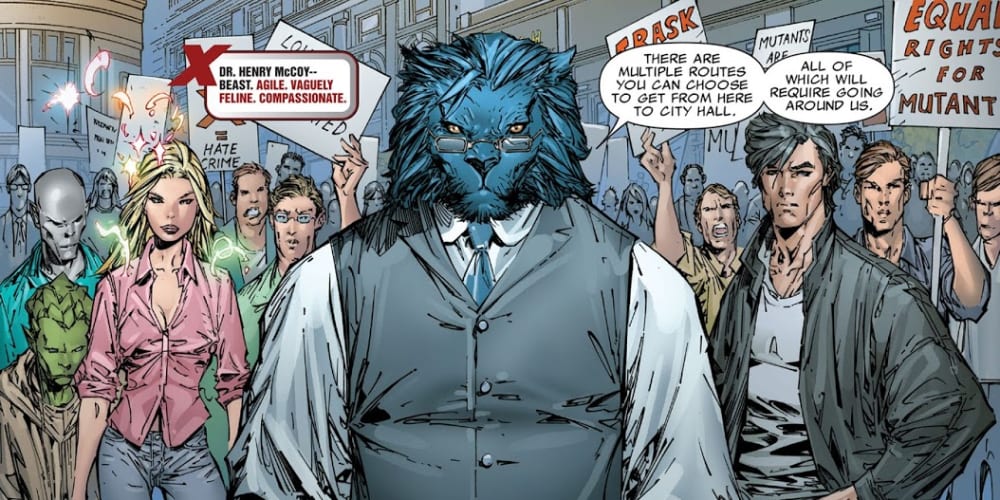

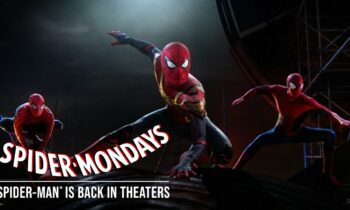

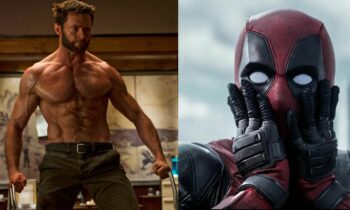
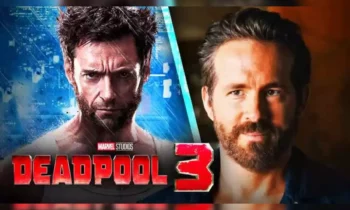
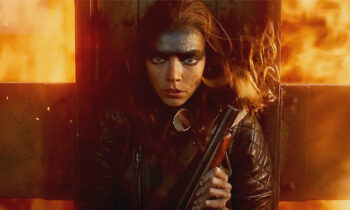

Leave a comment